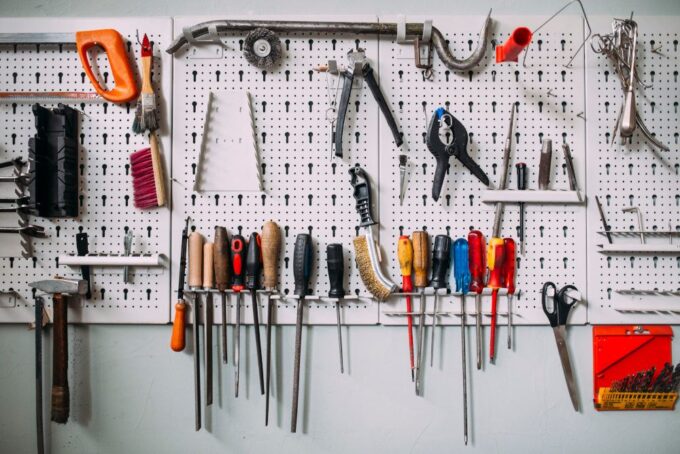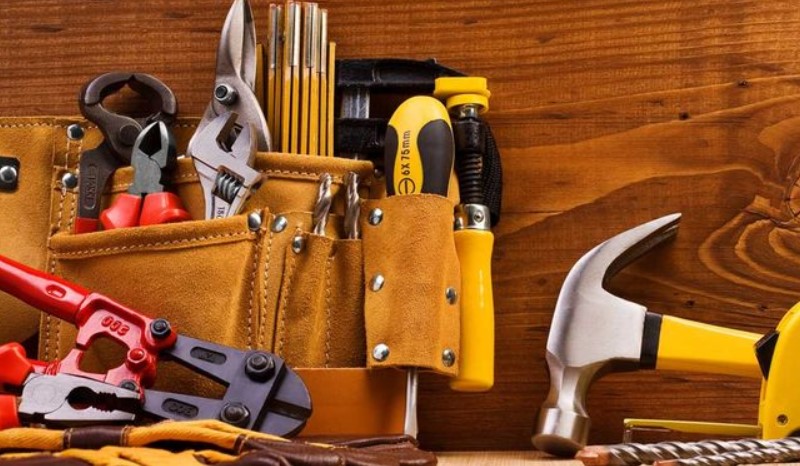When it comes to thriving in competitive business environments, it is important to keep looking for better ways to do things. Boosting profitability comes down to several factors such as streamlining systems and cutting costs. The industrial hardware sector is no different.
Herein lies the importance of knowing where you can slash costs and where it’s worth shelling out. Cutting costs shouldn’t mean compromising quality in any way, especially in an industry that is ridden with hazards and risks. However, there are certain areas where costs of industrial hardware supplies can be brought down without inviting trouble.
Here are a few tips for industrial hardware suppliers in this regard.
Work with the Right Manufacturers

It isn’t uncommon for material costs to rise on a regular basis. When this happens and the increase is significant, partner with manufacturers who review their processes along the supply chain and use materials optimally. This means that their products will meet the necessary specifications, even in terms of batch sizes. As a result, the unitary cost will come down.
It is a good idea to consistently weed out discrepancies resulting in material waste in the areas of:
- Sourcing
- Production
- Internal transport
- Storage
- Distribution
Preventative Maintenance Is Crucial

Whether you’re a manufacturer or an industrial hardware distributor, prioritizing preventative maintenance is a must. Daily inspections of all equipment might be time-consuming, but it is non-negotiable. It also goes a long way in bringing down the costs of industrial hardware supplies.
Preventative maintenance helps detect minor issues and prevents them from escalating. As an industrial hardware supplier, you should always make a note of the condition in which you’ve received any equipment or machinery from manufacturers.
Investing in machinery with high-quality components and following a regular maintenance schedule rather than waiting for the equipment to breakdown can help save costs in repairing or replacing the unit. Not to mention, your downtime will reduce, leading to lowered chances of incurring losses.
A sound maintenance plan will help prevent machine failure, and hence potential downtime. The plan should factor in the following measures:
- Servicing, repair and replacement of key components
- Availability of spare parts
- Timely and adequate lubrication
- Change of bearings and other crucial parts
- Regular cleaning
- Monitoring, detecting, and addressing anomalies
Invest in Quality

When it comes to heavy industries, most industrial hardware supplies (machinery and equipment) are an investment. Quality equipment not only performs reliably, it also lasts long, thereby minimizing the need for repairs or replacement. Companies are able to deliver higher and better output with minimal inputs. It is, therefore, necessary that they determine the ROI while considering both, the costs as well as benefits.
Redesign Processes as Necessary

It’s no secret that technology keeps evolving. Over time, processes can become redundant, leading to delays and quality-control issues. This can be highly detrimental to the bottom line of all stakeholders involved.
To weed out inefficiencies, regularly review your supply chain processes and evaluate their costs. By doing so, you should be able to figure out what’s working and what isn’t in your specific situation. Once you have this data, you can consider redesigning your processes and maximizing efficiency while minimizing costs.
Develop and Follow Sound Supply Chain Practices

Following certain industry best practices can go a long way in helping you reduce the cost of your industrial hardware supplies.
- Adhere to international regulations and legislations to maintain compliance. This means following the norms laid out by entities such as ISO 27001:2013, PCI DSS, ISO 9001:2015, GDPR, and HIPAA, and so on.
- Work with manufacturers/suppliers who follow lean practices to minimize waste of time, fuel, workspace, and other resources.
- Maintain all the necessary documentation.
- Conduct yearly audits of your facilities to figure our how much you can save on utilities, rent, office supplies, among other elements.
- Renegotiate terms and conditions with existing manufacturers to enable cost-effectiveness.
- Assess supply chain processes to eliminate time-consuming or repetitive processes.
- Optimize energy costs by upgrading your technology. Use smart thermostats and sensors, for instance, to manage your heating and cooling. Or you can use alternative sources of energy (solar energy, hydroelectricity) to run your operations to cut long-term costs.
Encourage Good Fuel Economy

Most equipment manufacturers and industrial hardware suppliers know that forcing machinery to render more uptime by overworking them can be disastrous – potentially resulting in damage or premature breakdown. But, machines and equipment with good fuel economy are able to make the most of the available time and resources, without raising downtime concerns.
Eliminating idle time is key to improving productivity, while also avoiding trouble related to environmental protection. You should take a look at your available equipment and try to find out which pieces are overused, underused, and idle. Having auto-idle systems can be helpful in reducing fuel consumption by your machines.
Uphold Worker Safety and Equipment Security

Ensuring worker safety and equipment security can mean saved costs as well. Well-maintained equipment considerably minimizes hazards and reduces the risk of accidents, protecting human lives. It also brings down the likelihood of critical equipment failure.
Further, a lot of modern IoT-backed technologies, such as RFID and geo-fencing, are now being harnessed to track the movement of equipment. This helps monitor their location and use, which in turn, prevents theft and unauthorized use.
Seek Professional Assistance

Last but not least, you can always seek professional assistance and guidance to reduce the cost of your industrial hardware supplies. Equipment experts conduct an in-depth analysis to the most accurate answers, so the chances of going wrong are next to zero.
Also, industry hardware distributors should develop the practice of working with manufacturers that offer quality equipment and spare parts. Take the time to build a strong working relationship with a manufacturer you can trust.
In Conclusion
As mentioned, industrial equipment and tools are an investment rather than an expense for heavy industries. It is crucial that your industrial hardware supplies are high-quality as well as modern enough to help you boost your operations. Working with obsolete or incorrect equipment can lead to downtime, reduced performance, lowered safety, and losses.
From the production speed, flexibility, and output quality to material waste and potential for growth – all these factors need to be considered when sourcing industrial hardware supplies. Hopefully, the above points will help you bring down the cost of your industrial hardware supplies without compromising on quality or risking the lives of your employees.
Elite Sales is a trusted industrial hardware supplier serving in Florida, Texas, and Indiana. We cater to numerous industries with our wide selection of durable industrial hardware for sale. Visit here if you have a question about a specific product or need help finding special hardware pieces. Get in touch today.









